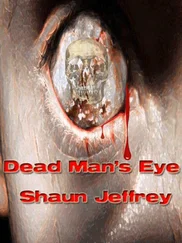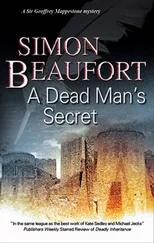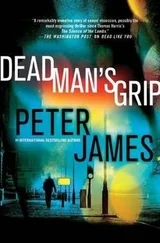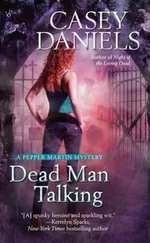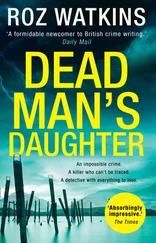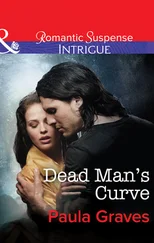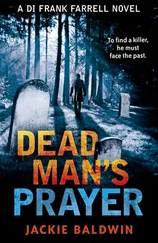Uh-oh. Stalker city. “Don’t you have a job?” I asked.
He frowned at me. “I’m retired from the ministry. My time is my own.” I imagined he used that exact voice in the pulpit when he wished to emphasize a scriptural point. The effect was diminished somewhat when a small, faceted perfume bottle tumbled from beneath his coat and landed in the grass. We both ignored it.
“I guess you spend time with Randolph, too.”
He froze momentarily, then leaned toward me. Hunched over like that, with his long, skinny neck and beaky nose, he reminded me way too much of a vulture. “Why would you say that?”
“I was chatting with Randolph this weekend and someone mentioned you’d stopped by,” I said, forcing myself not to back away. What could he do to me on this grassy lawn with hundreds of bargain hunters nearby?
Some emotion flitted across his eyes; it looked like fear. “What I do and where I go is no business of yours, young lady.”
“I’m just trying to keep Maurice from being convicted of Corinne’s murder.”
“Whoever killed my beloved Corinne should be burned at the stake. It was an evil thing to do. Evil!”
He said it with an intensity that made me wonder whether he had all his marbles. “I think you have an ulterior motive for being here today,” I said, stooping to retrieve the perfume bottle. I held it on the flat of my palm, the way you feed a horse so you don’t get bitten, and he snatched it.
“As do you, young lady!”
His accusation startled me, and I gripped my purse tighter. Could he know about the typewriter cartridge? Was he here for more than the odd memento? Was he looking to retrieve the manuscript, too?
His next words dispelled that fear. “You’re here, like they are”-he gestured to the crowd-“out of vulgar curiosity. You’re here to feed on the beauty, the gentleness, the incandescent light that was Corinne. Scavengers, all of you! Ghouls!” He threw one arm up dramatically, and a foot-tall bronze figure of a dancer en pointe clink-clank ed to the turf. Without another word, he bent, picked it up, thrust it into an interior pocket of his coat, and left. He strode rapidly across the lawn, trench coat flapping about his legs. I stared after him for a moment, not sure I’d accomplished anything by confronting him, then trotted toward where Tav and Poodle Guy were chatting by a pile of coffee-table art books.
Tav broke away from his conversation, joining me with a grin. I grabbed his arm and pointed to Hamish MacLeod as he disappeared down the driveway. “That’s Hamish MacLeod,” I said, “Corinne’s fourth husband.” I relayed our conversation and my conviction that the man was stealing easily portable items.
Tav looked after Hamish with interest. “Corinne certainly had eclectic taste in husbands,” he said.
I hadn’t expected him to go tearing after MacLeod and accuse him of theft, but his comment seemed anticlimactic. “Why do you suppose he was visiting Randolph at Hopeful Morning?”
Shrugging, he looked down at me quizzically. “Probably not for any nefarious reason. Perhaps you are so caught up in keeping Maurice out of prison that you are seeing suspicious behavior in very ordinary activities?”
His words stung a bit. “Well, I don’t call thieving ‘ordinary’ activity,” I said huffily.
We had reached the driveway by this time, and I stopped to put my shoes back on, using a hand on Tav’s shoulder to balance myself. I tried to slip him forty dollars, but he shook his head. “I want credit for doing my part in keeping Maurice out of jail. I only hope this cartridge contains something useful after all the hassle we went through to get it.”
The sun highlighted yellow flecks in his brown eyes as I smiled up at him. “You and me both.”
* * *
Since Tav was late for a meeting, I dropped him off at the Metro station before returning to the studio. Vitaly and I taught an international standard class at Wednesday lunchtime, and I had to hustle to get back for it. We introduced the Viennese waltz-harder than the regular waltz-to applause and groans.
“I don’t know how you manage to look like you’re floating, Stacy,” one woman said. “I feel like I’m wearing cement shoes.”
“Practice,” I said with a smile. “It’s all about practice. You can float, too; I promise.”
The class wrapped up at twelve thirty, and Vitaly stayed in the ballroom to coach an amateur-amateur pair who were excited about entering their first competition. I descended to my kitchen and called Maurice, leaving a message to let him know we’d finally acquired the typewriter cartridge. My hand was still on the phone when it rang, startling me.
“Stacy, I’ve got the CD with your proofs on it,” Sarah Lewis said when I answered. “I’m going to be at Tate Slade’s Fine Arts this afternoon, taking photos for a brochure for their new exhibition, and I can drop it by afterward, if you like.”
“How ’bout I meet you at the art gallery,” I said, feeling restless. “It’s on Royal, right, near the Episcopal church?”
I mopped the kitchen floor and then changed into white cotton slacks with a thin red stripe and a red peasant blouse before scooting upstairs to tell Vitaly I was leaving and to ask him to lock up when he finished. Walking the few blocks to the art gallery, I felt myself relaxing, sinking into the moment. I deliberately put aside thoughts of Corinne’s murder and the studio’s precarious financial position to enjoy the beautiful day. A calico cat looked down on me from his perch in a bay window, bricks herringboned the sidewalk in a hypnotic pattern, and the drone of an airplane high overhead made me glance up briefly. Reaching the gallery before I was ready to, I strolled past it to linger in front of St. Paul’s Episcopal Church, letting the sand-colored stones of its Gothic revival facade warm me, and admiring the swooping arches that fronted the church. Reluctantly, I retraced my steps to the art gallery and went in.
Dimness cloaked me, and I blinked while my eyes adjusted. The space was largely open, with bleached wooden planks on the floor, white panels for walls, and lighting provided by stainless-steel fixtures directed toward the paintings. A thin man on a stepladder and a minion struggled to hang a wall-sized painting that seemed to consist of little more than a canvas painted off-white with a wavy blue line bisecting it.
“We’re closed to set up for the exhibition. The opening’s Friday night,” the man on the stepladder called.
“I’m looking for Sarah Lewis,” I said, wandering closer to see whether the painting offered anything more up close. Nope. I peered at the discreet price tag on the wall and almost gasped: twenty thousand dollars. Eep .
“Back there.” The man jerked his balding head toward the rear of the gallery. As he spoke, a flash of light told me where I’d find Sarah.
“Thanks.” I wended my way around the panels and past more paintings as monochromatic and inscrutable as the first one. I like my art to have recognizable objects in it-people, dogs, flowers-or at least to feature bright colors. As far as I was concerned, these paintings took minimalism, or monochromatism or whatever the style was called, to heights of boringness seldom scaled by an artist. I left off critiquing the paintings as I rounded a corner to find Sarah Lewis adjusting a light on an aluminum pole.
“Do you think you could hold this just so?” she asked, spotting me. “It keeps slipping.”
I obligingly wrapped my fingers around the cool metal, and watched as she checked a light meter and then took a few photos of the canvas in front of us.
“Thanks.” Letting the camera hang from a strap around her neck, she reached into a multipocketed duffel and withdrew a CD case. “Let me know which ones you want. Eighty dollars each.”
Читать дальше


